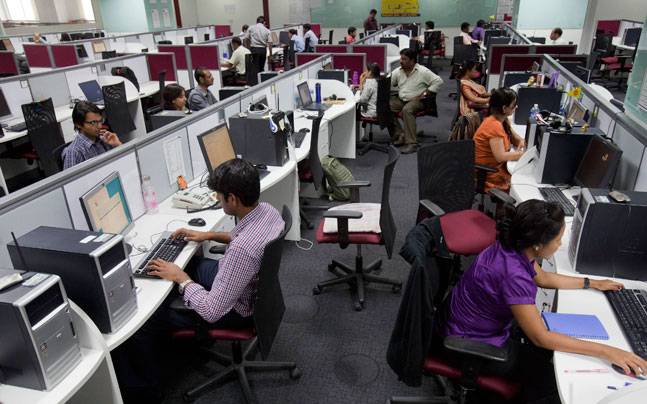
Trump puts America First: New H-1B visa regime to hurt Indian IT firms
In a fraught move for India, the US Department of Homeland Security has announced that it would crack down on fraudulent use of H-1B visas, used by employers to bring …
Read MoreGlobal Indian News

In a fraught move for India, the US Department of Homeland Security has announced that it would crack down on fraudulent use of H-1B visas, used by employers to bring …
Read More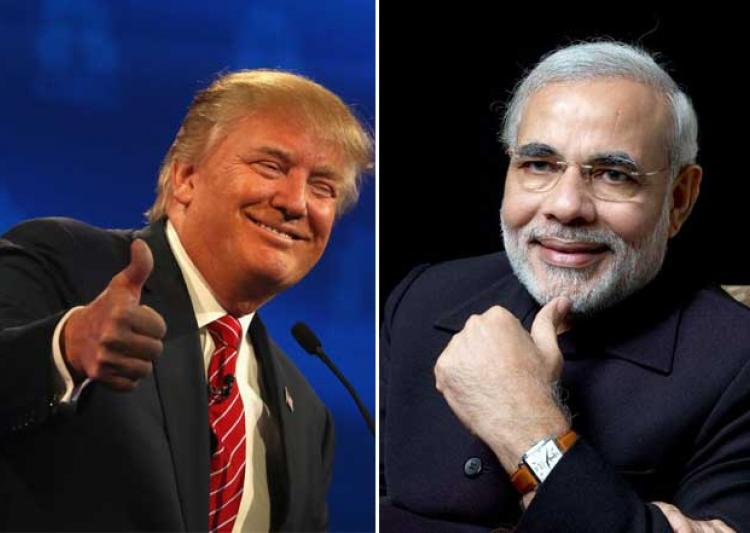
It promises to be the big-ticket diplomatic meeting of the year for Prime Minister Narendra Modi. The dates are not out yet, but the White House has already struck an upbeat note, saying US President Donald Trump looks forward to hosting the Indian leader.
“President Trump has said he looks forward to hosting Prime Minister Modi in Washington later this year,” a White House statement said on March 29, following a telephonic conversation initiated by Mr Trump the day before to congratulate Mr Modi on the Bharatiya Janata Party’s sweeping victory in elections to legislatures in four Indian states, including the country’s most populous state, Uttar Pradesh. “President Trump also expressed support for the Prime Minister’s economic reform agenda and emphasized his great respect for the people of India,” said the statement.
Although Mr Modi and Mr Trump may have a brief meeting on the sidelines of the G20 summit of the world’s major and emerging economies in Germany in July this year, it will be the Indian prime minister’s first bilateral visit to the US after the change of guard in Washington in January this year.
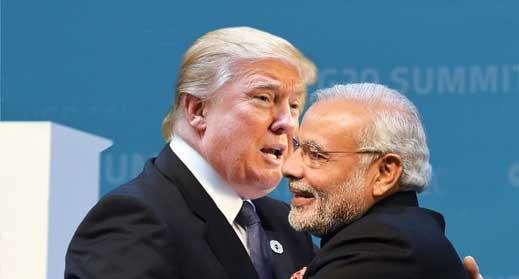
The success in recent state elections in India has bolstered the global profile of India’s Prime Minister Narendra Modi, with many world leaders, including US President Donald Trump congratulating the 66-year-old Indian leader. Mr Trump called up Mr Modi on March 27 and congratulated him on the Bharatiya Janata Party’s success in recent state elections, including the landslide victory in Uttar Pradesh, the Indian state whose population surpasses that of the combined population of Britain, France and Germany.
This was the third telephonic contact between the two leaders – the first two being soon after Trump’s US presidential poll victory in November last year and the second after his formal swearing-in in January this year.
Underlining India’s keenness to sustain the momentum in ties with the US built up during the presidency of George Bush and Barack Obama, India’s Foreign Secretary S. Jaishankar and National Security Advisor Ajit Doval made back-to-back visits to Washington.
Mr Trump and Mr Modi had last spoken to each other in January when they discussed the security situation in South and Central Asia. India and the United States will “stand shoulder to shoulder” to fight global terrorism, the White House had said after that interaction.
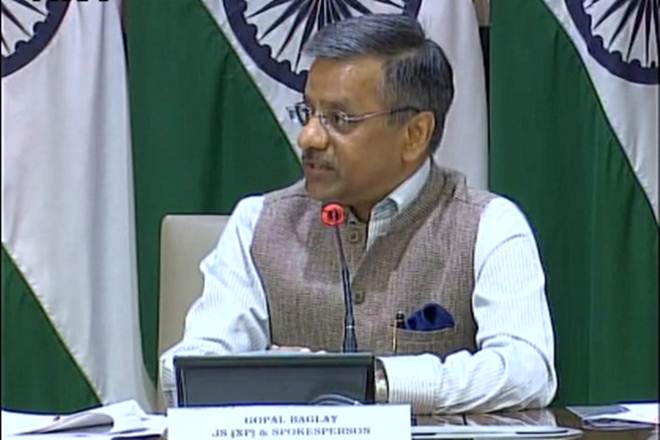
Amid persisting concerns in India over the US suspension of the fast-tracking of H1B visa, India has made it clear that this is purely a business issue which should not be allowed to jeopardise huge opportunities in consolidating Indo-US economic partnership. India has also highlighted the US’ recognition of the contribution of the Indian IT professionals towards making the US economy competitive.
Clarifying India’s position, the external affairs ministry’s spokesman Gopal Bagley told the media in New Delhi on March 9 that “the presence of skilled Indian professionals is a positive for the US economy and particularly when the US seeks to build a stronger economy.”
“There are advantages in terms of backward linkages…..When we combine all this with our own government’s efforts for economic reforms and a high sustained economic growth, there is obviously a very important opportunity here for both countries to consolidate their economic partnership,” he said in response to a question.
The issue was taken up by India’s Foreign Secretary S. Jaishankar when he held talks with US Commerce Secretary Wilbur Ross in Washington last week and flagged New Delhi’s concerns. A few days later, however, the US announced the suspension of the premium processing of H 1B visa, in keeping with the Trump administration’s stand that its priority was ban on immigrants and not the visa.
In keeping with its “America first” slogan, the Trump administration, on assuming power, had reintroduced recently a Bill that prohibits companies from hiring H1-B employees if they employ more than 50 people and more than 50 per cent of their employees are H1-B and L-1 visa holders and encourages companies to recruit American workers.
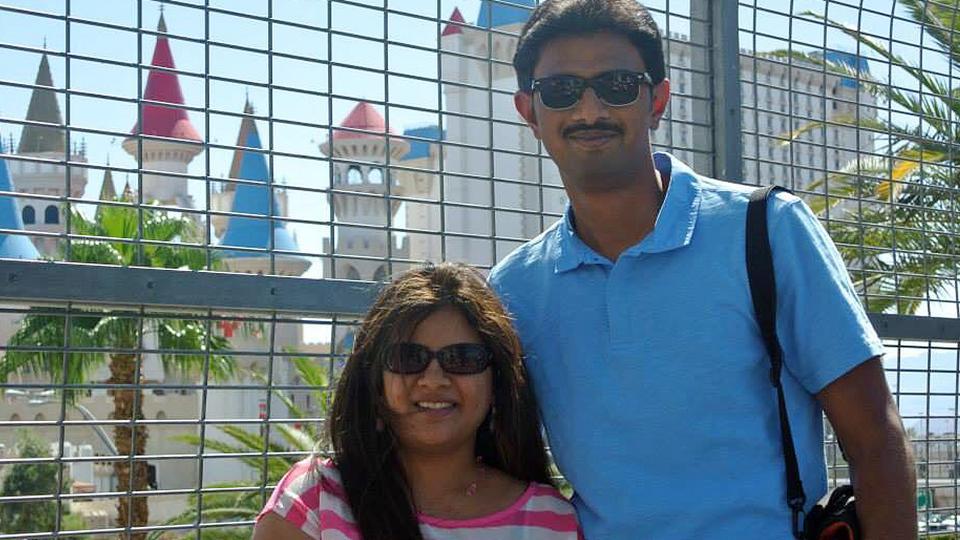
Was it a hate crime? Was US President Donald Trump, with his anti-immigrant rhetoric, complicit in the racially motivated killing of a young Indian IT professional by an enraged drunk white man in Kansas? These are all-too-real questions to ask, but are not of much solace to the wife of Sunayana Dumala, whose husband Srinivas Kuchibhotla, was killed at Austins Bar and Grill in Kansas on February 23.
For the 32-year-old Kuchibhotla, it was a tragic and violent end to his American dream, which was all the more saddening as it happened in “a country he loved so much,” as his wife said. “Get out of my country,” – these were the last words yelled out by his killer he heard before he was shot dead by Adam Purinton, an American charged for drunk driving more than once.
This is a huge presumption of innocence as hate killings like these, though perpetrated by maniacs, feed on an atmosphere of jingoism and racism.
The insane killing like this one is clearly a morale dampener for the over 3-million strong Indian community that has made America their home. The incident questions the foundational myth of America as a country welcoming of immigrants. In the days to come, as New Delhi builds ties with the new US administration, it should carefully monitor rhetoric emanating from white supremacists in Washington as it could unintentionally endanger the lives of Indians who have enriched their adopted country in countless ways, but are now vulnerable to xenophobes of all stripes.

With strong bipartisan consensus for developing India-US relations, New Delhi is not worried about the course of this vital relationship under the Donald Trump presidency, and is set to leverage enormous goodwill in the US Congress. At a time when top leaders of Britain, Israel and Japan had rushed to Washington to have a measure of the change of guard in the White House, India is doing the same in a way different from top-down approach.
To begin with, a record number of 27 US Congressmen drawn from both the Democratic and the Republican parties will visit India beginning later this month, reflecting a long-standing bipartisan approach in Washington to further strengthening of relations with New Delhi.
Read More
The spectacular headline-hogging victory of billionaire tycoon and reality TV star Donald Trump, who took charge as the 45th president of the US on January 20, has unsettled the global consensus about America’s leadership and position in a conflicted and mutating world order.
Nearly all parts of the world, impacted by the US’ policies directly or indirectly, are speculating feverishly about the ramifications of the Trump presidency. The dominant sentiments are that of anxiety, befuddlement, uncertainty and unpredictability. These disparate worries and apprehensions can be coalesced and crystallised in the Trump Anxiety Index (TIA), which will rise and decrease in proportion to the policy and postures his presidency will adopt towards major cross-cutting issues.
The questions are proliferating by the day, but the Trump anxiety is more pronounced in some countries and regions of the world. On a scale of 1 to 10 on Trump Anxiety Index, China, Mexico and Pakistan will score high, maybe 7-8. By contrast, India scores low, maybe 3-4.
Why India is not so much worried about the Trump presidency? The answer to this all-important question is not all that esoteric. While there is some speculation about a possible reset in India-US relations in some areas, the picture is largely positive and optimistic, and it won’t be an exaggeration to say that there will be more continuity than disruption and potential subversion.
Looking ahead, the picture for India-US relations is largely optimistic, albeit the road ahead is fraught with some challenges and imponderables. Both George Bush Junior and President Obama had raised the bar for what the latter has called “the defining partnership of the 21st century,” and it is now up to President Trump to seize the initiative and leave his indelible imprimatur on this important relationship. Trump’s dream of Making America Again should blend with continued support for India’s rise, the ongoing project of making India great again. The hesitations of history, as PM Modi famously said, are well behind us, and it’s time for the world’s largest democracies to compose a new symphony amid challenges, uncertainty and free-floating anxiety. Read more…
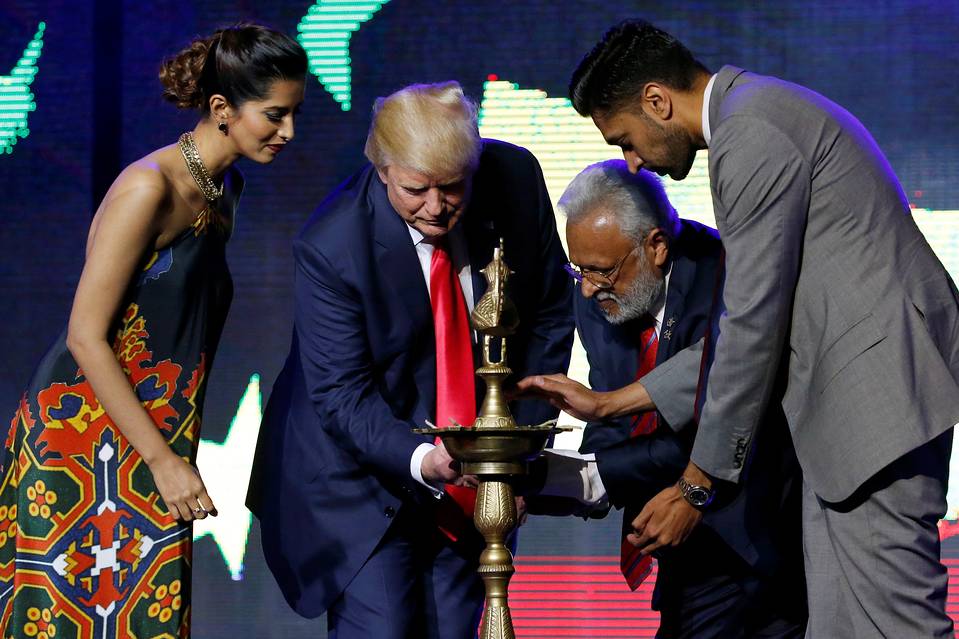
Shed Trump anxiety; India-US relations will be on an upswing. This was the reassuring message from US envoy Richard Verma amid ripples of worries in some sections in India about what the incoming Trump presidency will bring for India.
Alluding to an all-round transformation of India-US relations in the last two years, Mr Verma, the first Indian-American to be appointed as the UA ambassador to India, underlined that the US will continue to support India’s rise and will be New Delhi’s closest partner in months to come. “India is a country on the rise. We will support India’s rise and continue to be your closest partner,” the US envoy told an audience of diplomats, businessmen and journalists at a luxury hotel in the Indian capital on December 6. He was speaking at an interaction organised by industry body CII and Indo-American Friendship Association.
Providing a snapshot of the dramatic upsurge in the India-US relations, Mr Verma projected that “this upward trajectory will continue.” Allaying apprehensions about any possible diminution of commitment by the Trump administration towards India, the envoy argued that the momentum in the India-US strategic partnership will continue as there is widespread bipartisan consensus across the political spectrum in Washington.
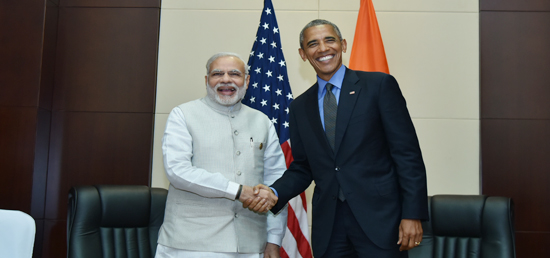
It was the last meeting between India’s Prime Minister Narendra Modi and US President Barack Obama, but it looks like they will be seeing more of each other even after the American leader demits office.
“It was a very warm and friendly meeting on the sidelines of the East Asia Summit. Both leaders reviewed the immediate priorities in the strategic partnership,” said sources after their meeting in Vientiane on September 8.
“PM also invited President Obama to visit India after he demits office,” said sources. “President Obama said that he would welcome any opportunity to visit India. As an aside, he added that he and Michelle were yet to see the Taj Mahal!”
It’s not clear what was discussed about the US’ plan to fast-track India’s membership of the Nuclear Suppliers Group, for which the US support will always be crucial. There was, however, a cryptic hint that President Obama will do all he can and help in any way he can. “President Obama said that he has always been a friend of India and will continue to be a “strong partner of India and help in any way I can,”’ Said sources.
Reading between the lines, those in the know can expect that Mr Obama will do his best to advance India’s NSG membership, but going by current geopolitical complications and conflicted India-China relationship, New Delhi may have to wait a while before it enters the nuclear club as a member.
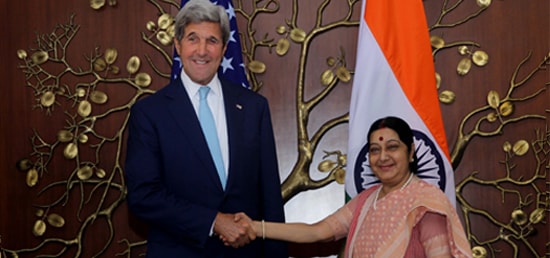
Marking a meeting of minds on a host of pressing issues, India and the US have decided to step their counter-terror cooperation, with Washington strongly backing India by renewing call to Pakistan to bring the perpetrators of the Mumbai and Pathankot terror attacks to justice.
The second Strategic and Commercial Dialogue between India and the US ended on a high note, with both sides upbeat about the blossoming of bilateral relations in all spheres and underlining their resolve to take this strategic partnership to new heights.
The US’ robust backing on India’s concerns over Pakistan-sponsored terrorism was music to New Delhi’s ears. “The US supports all efforts to brining the perpetrators of the Mumbai and Pathankot attacks to justice… terror is terror no matter where it comes from,” said US Secretary of State John Kerry in New Delhi on August 30, after wide-ranging talks with India’s External Affairs Minister Sushma Swaraj. The two strategic partners also reiterated their resolve to intensify counter-terror cooperation. They will intensify intelligence sharing and specifically “work for the early operationalization of an agreement on exchanging information on known or suspected terrorists,” said Mrs Swaraj. The two sides also signed a framework agreement on combating cyber crimes.